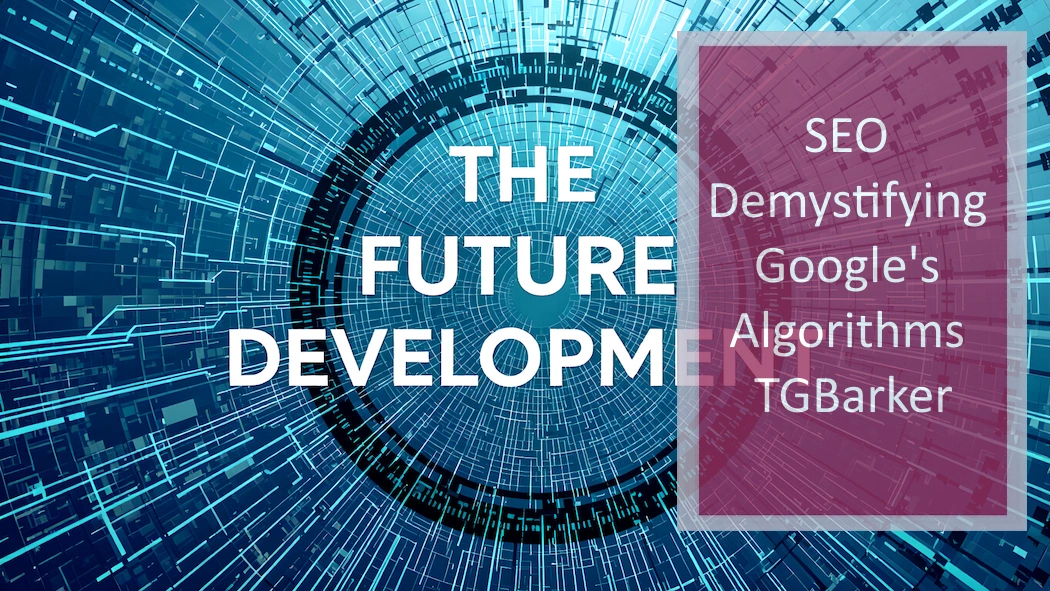Navigating AI and LLMs

The future of SEO is shaped by predictive models that adjust rankings based on intent, behaviour, and the probability of satisfying a user’s next step. I explore how these emerging systems work and how businesses can prepare by focusing on clarity, value and structured content. SEO is moving towards understanding relationships rather than individual keywords, and the websites that adapt now will gain long-term advantage.
If you want to see how models evaluate current ranking behaviour, read my page on Google algorithm changes.
Search engines have come a long way since the days of “ten blue links.” As technology evolves, so does our approach to information retrieval. In this article, we’ll explore the future development of search engines, with a focus on AI (Artificial Intelligence) and LLMs (Large Language Models). For a deeper look at the mathematical models that drive these intelligent systems, check out How Markov Chains & Graph Theory Supercharge SEO.
The Role of AI in Search Engines
Personalization and Voice Search
AI has already transformed search results. Personalization algorithms learn from user behavior, tailoring search results to individual preferences. Voice search, powered by AI-based digital assistants like Alexa and Siri, is on the rise. Users now ask questions conversationally, expecting accurate answers.
Visual Search
Visual search is gaining prominence. Instead of typing keywords, users can upload images to find related content. AI analyzes visuals, making search more intuitive. Imagine snapping a photo of a product and instantly finding similar items online.
Google’s Perspective on the Future of Search
Google’s CEO, Sundar Pichai, emphasizes that AI has been part of search for years. The web ecosystem still matters, even as direct answers (like featured snippets) become common. Google’s evolution isn’t about abandoning websites; it’s about enhancing the user experience.
Pichai dispels the myth that Google has clung to “ten blue links.” Mobile search brought changes, and the future will see further technological advancements. Websites will continue playing a crucial role, adapting alongside AI-driven search.
The Promise of LLMs in Search
LLMs, such as GPT-5, hold immense promise. These language models understand context, generate coherent responses, and improve search accuracy. Imagine search engines that truly grasp user intent, providing relevant answers without sifting through irrelevant content.
Challenges and Opportunities
Perplexity and Burstiness
Balancing perplexity (keeping users engaged) and burstiness (providing novel information) is essential. LLMs must avoid becoming predictable while maintaining coherence.
Specificity and Context
Search engines must retain specificity. AI should adapt to context without losing relevance. Striking this balance ensures accurate results.
Ethical Considerations
As AI shapes search, ethical questions arise. Bias, privacy, and transparency need careful handling. Responsible development is crucial.
Conclusion
The future of search engines lies in AI and LLMs. We’re on the cusp of transformative changes. Embracing technology while upholding user trust will define the next era of search. Now, let’s address some FAQs:
FAQs
- Will AI replace human-curated content entirely?
- No, AI enhances content discovery but won’t replace human creativity and expertise.
- How can I optimize my website for AI-driven search?
- Focus on quality, relevance, and user experience. AI rewards valuable content.
- What about privacy concerns with personalized search?
- Striking a balance between personalization and privacy is crucial. Transparency matters.
- Are visual search engines reliable?
- Visual search is improving, but it’s not flawless. Expect refinements as technology evolves.
- What’s next for search engines beyond LLMs?
- Quantum search algorithms, neural interfaces, and more await us. Exciting times ahead! 🚀
Remember, the future of search engines isn’t about replacing websites—it’s about empowering users with smarter, more intuitive tools. Boldly embrace the AI-driven era, and let curiosity guide your searches!
Guaranteed 20% Magic Juice Improvement
If your site doesn’t reach at least a 20% improvement across visibility, rankings, or structural quality within 30 days of you applying your action plan, we keep working with you at no extra cost until you achieve it.
This is our price for the once-off private and Confidential audit at only £375.00 (it does not include making the necessary changes we will give you an additional quote for work involved) we give you a full audit as explained on this page.
Start Your 20% SEO Improvement. Please contact Gordon by clicking here.
Or to view full pricing, see our
SEO Pricing & Packages.

